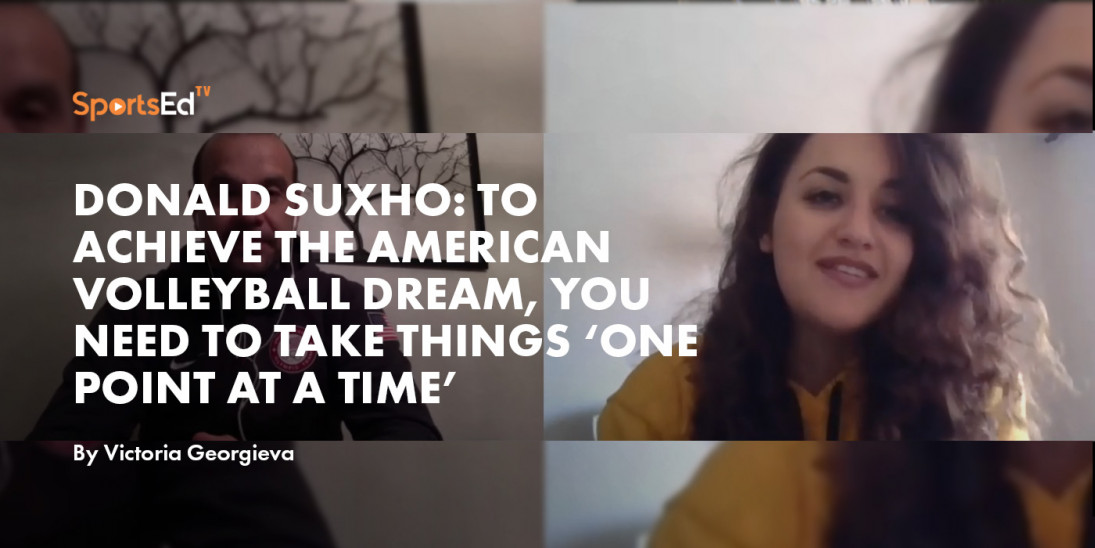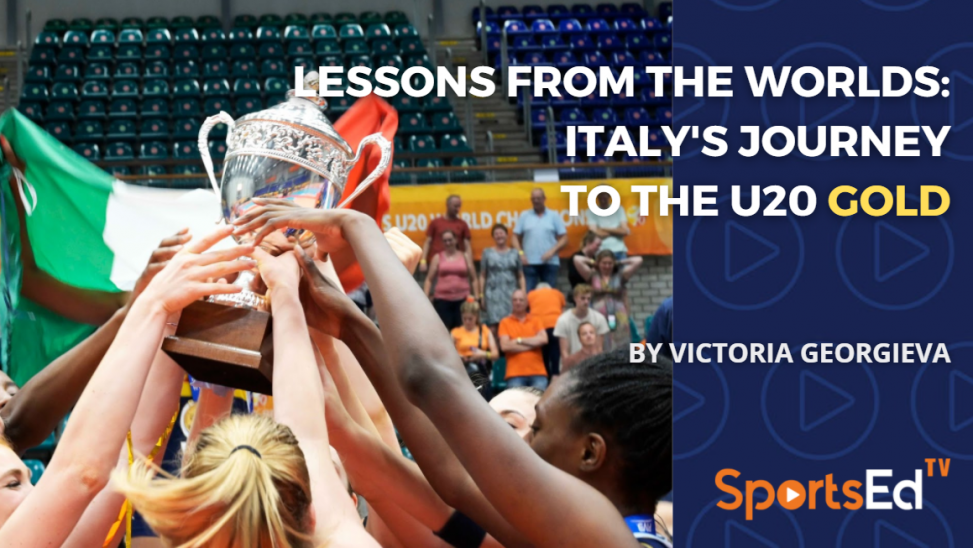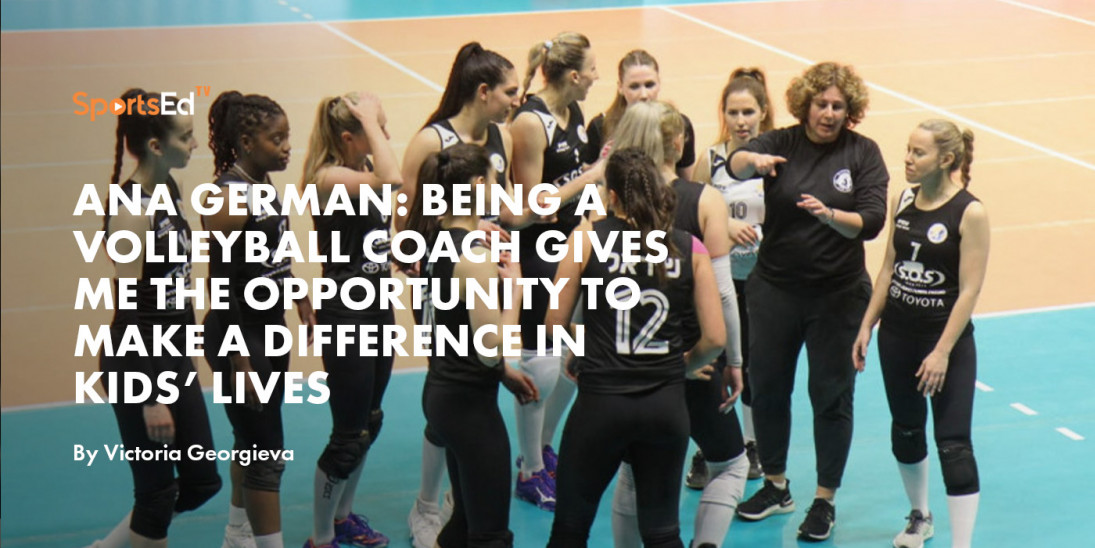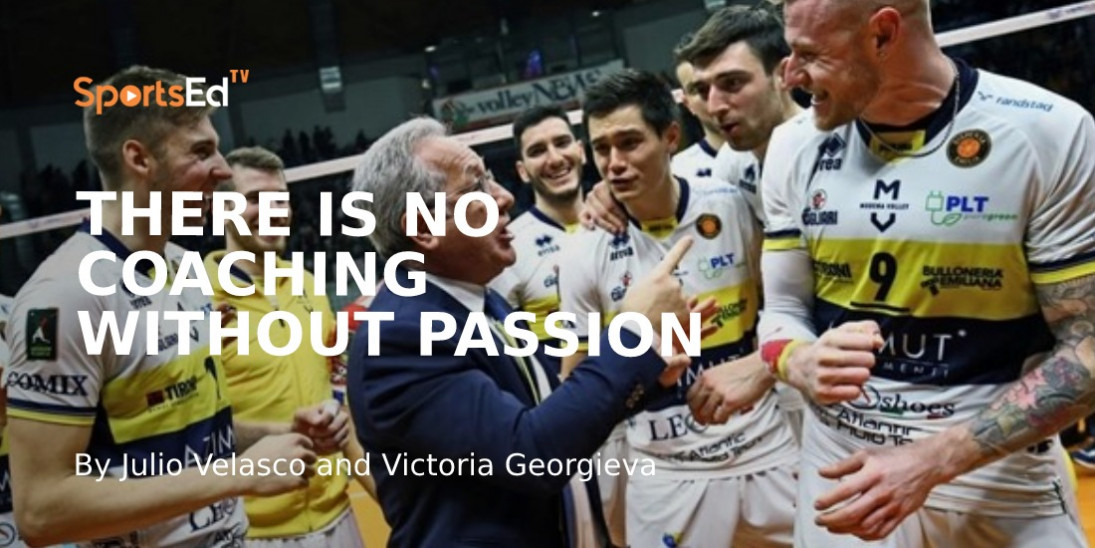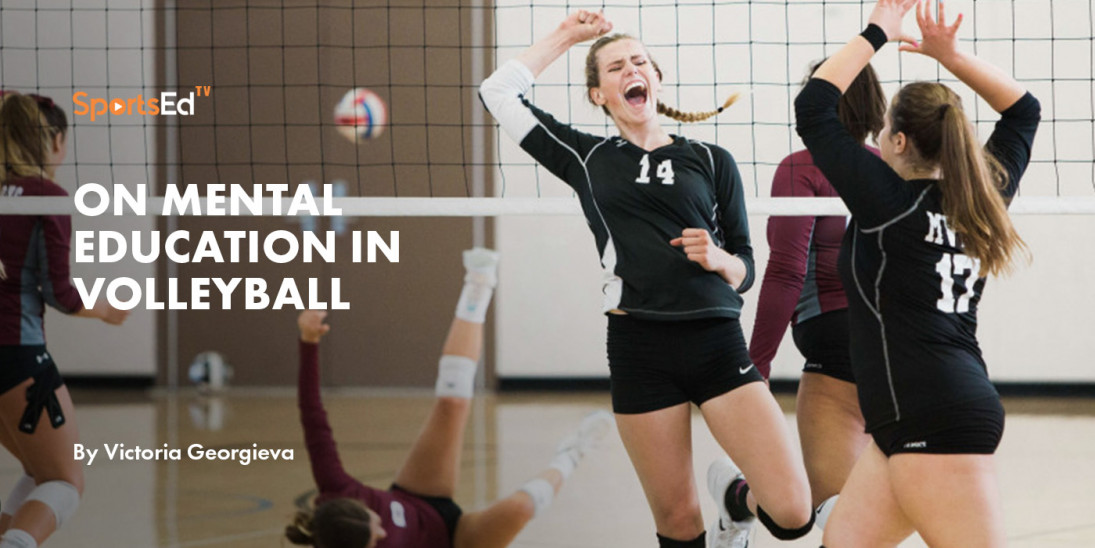Volleyball
Welcome and thanks for visiting...

The One, Karch Kiraly: “Volleyball teaches us about the important things in life”
If you have ever heard the word ‘volleyball’, there is around a 99% probability of having heard the name Karch Kiraly as well. There are people whose names have become a synonym of what they are doing, and this is definitely the case with the U.S. volleyball legend.
“Charles Frederick “Karch” Kiraly is the only athlete to win Olympic medals in both indoor and beach volleyball and is known as the winningest player in volleyball history,” we read on the Team USA official site.
Is Karch Kiraly the best volleyball player ever?
The winningest player in volleyball history has recently added another big success to his long list of achievements - winning the Olympic gold medal as a head coach of the USA women’s team. The victory allowed Kiraly to join China’s Lang Ping as the second person to win gold as a player in volleyball and then lead the country to gold as a coach. But his focus is not on his achievement - he is just beyond happy about the “badass” women from the team and who made a dream come true.
Member of the Volleyball Hall of Fame (since 2001), Kiraly together with the Italian Lorenzo Bernardi was declared by FIVB as the Best Volleyball of the XXth century. Looking at what he has achieved throughout his life, can leave anyone speechless.
Playing at the beginning of the 90s in Italy, Karch was known as “the computer” - for his great memory and attention to detail. Just go and ask people who knew him by that time (journalism stalker alert, I did that :)). All would tell you stories about Kiraly’s determination, focus, and approach to the game.
As this blog is my safe place to share my passion for the game, and as we are all human, here is the moment to tell you how nervous I was to talk to Karch. In between two European championships, I had to prepare myself for one of the most important Volleyball interviews that I could do.
When a colleague asked me what questions would I ask Karch, if they would be more for a portrait interview, or will I delve just into the technical part of how team USA won the Olympics, I just froze. How do you make such a choice? You just wanna talk, listen and learn. About volleyball and about life.
So, what I did is a mixture of all - and I do hope it will be of your interest. Trust me - there is a lot to learn from the next paragraphs.
Ladies and gentlemen, Karch Kiraly.
A dream come true - Tokyo 2020
Just a month after winning the Olympics, Karch and his staff are already focused on the next goals along the road. As a real example of a team player, Karch always talks in plural, when mentioning success.
“The Tokyo 2020 success is a wonderful accomplishment, a wonderful feeling,” Karch says. “But we have not had a lot of time to enjoy it, with other tournaments happening, the European championships, and our team getting ready to play in NORCECA. We are always looking forward and trying to get better”
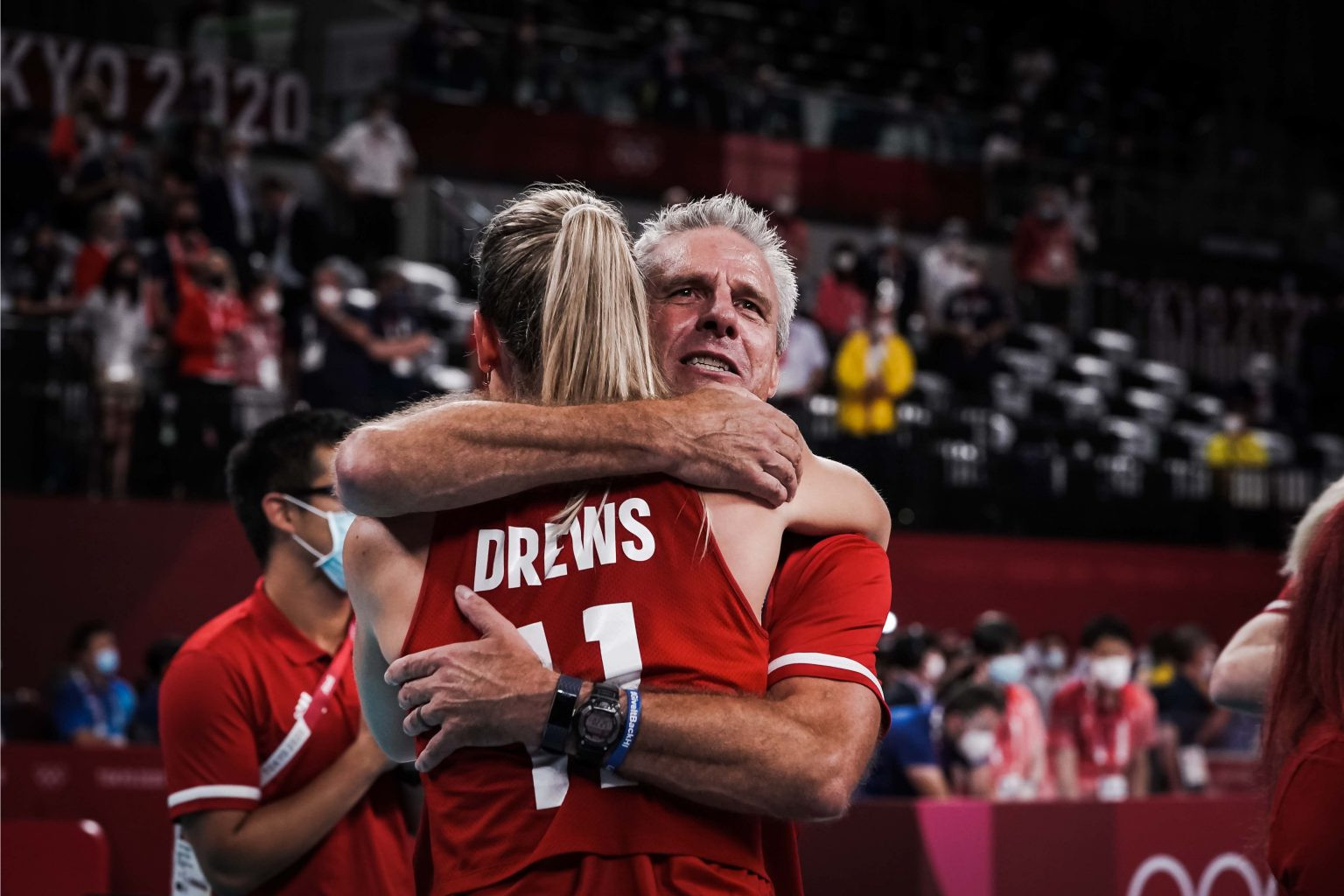
Team USA met Brazil in the Olympics final, and, statistically, outclassed them on all counts. But was there another secret, behind the scenes, towards achieving this success?
“I don't know if there was anything secret, but certainly our team, for a long time, has had this goal. We know we are not the team who counts on only one player who can dominate offensively, or who can take over no matter how many blockers, for example. We have to play more of “all-around team volleyball”. At the Olympics, we wanted to be the “closest to the team”, the one with the best connection, the best teamwork, and the best trust. I think that we may have accomplished this goal.”
They definitely have done so, as although built around great players, the USA women’s team tries to and succeeds in bringing out the best of what one can understand by “team”.
“We don’t have players like the ones you mentioned (Serbia’s Tijana Boskovic, Italy’s Egonu or China’s Zhu Ting). But we like playing the way we play. Which is not depending on one player so much. Especially, if things don't go that well for that player, then the team's chances to show potential get lower. We love the way we play, and we just try to play at the highest “level of a team” in team volleyball.”
Asked about what this gold medal means to him, Karch doesn’t delve into explaining how important it is to be the second person in the world of volleyball to have reached the Olympic peak both as a player and as a coach. Instead, he puts the focus on the players, and that is seen by many in the live connection just right after winning the medal when Kiraly together with Haleigh Washington burst into tears.
“What I tell people is that I am incredibly happy for the team, for this special group of women. I call them “badass” women. Women who are incredibly hard-working, intelligent, powerful, disciplined,” Karch says, and you can see this inspiration in his eyes. “I am happy for the badass women and the program. After eleven tries at the Olympics, twelve if you count the 1980 boycott, after decades of suffering, and coming really close (three silver medals, and two bronze medals, including three medals in the three previous Olympics), our team finally have reached the summit of volleyball's highest mountain. And now will be forever Olympic champions”
The role of emotions
Seeing Kiraly and Washington showing their pure emotions after grabbing the Olympic crown, one asks themself about the important role of emotions in volleyball. To note, it is not always a positive nor always a negative one.
“It is very difficult to have too little emotion at the Olympic Games. It's an incredibly intense tournament. The important thing is, for me, before each match, and during each match, to try to remain very even and steady. We had some difficulties, we had injuries, and we had a coach who wasn't allowed to do her job the way she normally does, so we had some challenges to face. Every team had them, and our focus was to try to stay really even throughout that. But then, when it was done, that was the time when we could let our emotions out.”
The voice of the coach in volleyball
Kiraly is sincere, sharing that he is constantly working towards improving and getting to know his coaching voice. And at the same time, he believes that is a very personal and unique process that each coach has to face alone.

“Each coach has to find their own voice, the one that fits what they stand for. Some coaches are far more emotional. I have seen some coaches diving on the sideline, as their players dive to try to make the play. All have to find their own voice and not try to be like anybody else. They also have to find a voice that is right for the team that they are coaching. There’s no perfect answer. Each answer is different for each coach and different for each team that they are coaching.”
Starting his coaching career, the US volleyball legend also had to face the challenge of finding his own voice. And it is a work in progress, as he later confesses.
“It is a challenge to me because as a player I probably demonstrated more fire, anger, and other emotions, and that was right for me at that time for me, as a player, with the teams that I played on, indoors and on the beach. But then, I had to find my coaching voice. I have always been working on that. I had to find the right balance between the fire and the passion and the calm and the voice.”
How did it all start?
Back in 1956, there was this young Hungarian man who escaped his native country after the failed nationwide revolution against the Hungarian People's Republic and its Soviet-imposed policies. This man played for the Hungarian junior volleyball team and ran away to the USA. Leaving his family in the lookout for a better life, he brought to the new place his love for sports, and more especially, for volleyball and soccer. This man was the father of, who later turned out to become the most successful volleyball player of all time (so far).
Laszlo Kiraly became “the guilty one” for the six-year-old then Karch to take up the sport.
“When I first started with volleyball, I was a six-year-old. We had moved to California just for one year, my father was just done with medical school, so he was now starting to become a full doctor. He used to work very hard during the week, 90-100 hours, but on the weekends, we would go to the beach, because he had fallen in love with this new game, the beach volleyball. He would be playing in Santa Barbara, still one of the world's best places to just play volleyball. I was going with him. He and I would just try to keep the ball not falling. We would just see if we can keep it 5 - 10 times, this is when I learned to just put my hands together, trying making an underhand, a forearm pass.”
At the age of 11, Karch, together with his father, would start taking part in different competitions. For him, it was an opportunity to spend time with his parents, and in the meantime, he would meet on the court with much more experienced players.
“My father was my first teammate and my first coach. We played together for about four years. At that time, there were no tournaments for kids or for underage groups. We were just playing against grown men, and it was wonderful for me. I loved the time I got to spend with my dad. I was learning from him because I played next to him. Probably the thing that I learned most from him is how much he cared about the next play, and how much he had worked on the next play. He had a great passion for the game, and for playing it one point at a time.”
Dreaming big or just thinking about the next point
Karch realizes that whether it was dreaming big or focusing on the next point, he was lucky enough to have the great support of his parents.
“I have been very lucky and am lucky that they are alive, doing well in their 80s, both still together. I grew up having mum and dad together, and not everybody gets that good fortune. Especially that they were both so supportive of me and my career.”
What started as a passion and an opportunity to spend time with his father, had later become a serious thought for the 15-years-old then Karch.
“When I really started thinking more about bigger things, about the future, I was 15. The Montreal Olympics were going on, there was a great team from the Soviet Union, a great team from Cuba, and a great team from Poland. We had no internet, and no YouTube, so I was really looking forward to watching them on TV. I was waiting and watching, waiting and watching, for two weeks. To see some volleyball. And I almost missed it! I believe I went to take a quick bathroom break, and they only showed a few minutes of what was to that point the most exciting final that has ever been held. All five sets were incredibly exciting between Poland and the Soviet Union. Maybe they showed around three minutes of it. I wanted to see these guys, that were my idols at that time, I wanted to see pictures. I never got to see them in live motion. It was then that I realized that the reason they showed so little was that our US team was not at the competition. We weren't good enough to qualify. That's when I started thinking about how I can help become better, be a player that makes the team better so that we can qualify for the Olympics. Still a team that could contend and fight for a medal.”
Hearing this answer, something clicks, and you realize that the definition of ‘dreaming big’ can also be interpreted as ‘becoming a better version of yourself and helping others to become a better version of themselves. It does include dreaming about trophies, but surely it doesn’t stop there.
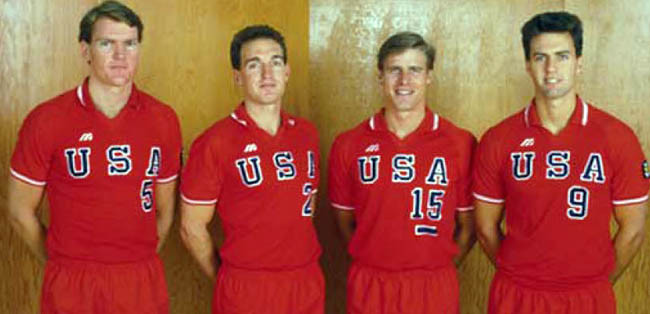
Photo source: chemistry.ucla.edu
"I wanted the U.S. men to be competing at the Olympics, and I wanted to be part of that group that would compete. It would have been great to see the U.S. women doing great also, even though I was a player on the men's team. It all comes to my realization that American television is not going to show much of a sport if there are no Americans doing it, no Americans competing. I had to be a part of the team, helping."
Karch joined the team in 1981 and three years later, the U.S. team became an Olympic title holder.
"Correct, even though I don't know if I can say that we were the number 1 team in the world. It could have been, but we didn't get to learn that because of the boycott. In 1980, the USA led a boycott to the Moscow Olympics, and then there was the reverse boycott by the Soviet Union, in1984. So, while we won that Olympics, there were still big question marks in our minds, what could we do if we were in a tournament with the Soviet Union? We started learning those answers in the next year, in the 1985 World Cup, World Championships, and at the next Olympics. That's why some of us stayed longer because we wanted to win the Olympic Games that were as strong as possible. Not missing some of the best teams."
Does this mean that the 1988 Gold medal means more to Karch compared to the one of 1984? Kiraly’s philosophy is that they were somehow different.
" There was something very special about 1984, the women winning a silver medal, against China, and then the next night we beat Brazil. The first time winning the Olympics was something incredibly exciting. Then, the bigger accomplishment was later, when we got to play the Soviet Union in the final in 1988."
The past and the present of volleyball
Kiraly is one of the people who have seen almost everything in the world of volleyball in the past decades. How has he seen the evolution of U.S.volleyball - from the late 60s to nowadays? Was continuous hard work the key to positioning USA teams as leaders in the different groups?
"Yes, for sure. In the 1960s, and 1970s, for most sports, until the late 1970s, the USA tried a way that wasn't working. And that was, we had some very good volleyball players, but they spent almost no time together. They would gather for a week or two for training and to try to qualify for the Olympics and compete. But that didn't work very well. Both U.S. men and women failed to qualify for the 1972 Olympics, and the Montreal Olympics. The USA finally learned that there has to be a different way with the team, spending more time together each year. The men started doing that in 1977. We needed basically a year-round program, instead of a program that was only a few weeks here, and a few weeks there. We also needed great coaching, and both the women and the men got those things. The women qualified for the Moscow Olympics but didn't get to compete, and then we both qualified for the Los Angeles 1984. It is true that we were also hosts, but we were also there because of all the time we spent together. "
And if this was an innovative way to train back in the 1970s, nowadays, this methodology is applied in other countries such as Italy and Club Italia as well. Is this the right approach to these things?
"Yes, I think it’s definitely to think long-term in terms of development. As you say, in Club Italia, they are helping junior players to develop, giving them more opportunities to see volleyball at a higher level, and to stand with people who play at a higher level."
On finding inspiration after winning everything
Karch amazes me with his ability to never get tired of volleyball. Or if there are such short-term moments, the global volleyball community can definitely be happy that the American always makes his way back to what he loves.
"I am probably making the mistake right now of not enjoying what we just achieved. Because I know in less than three years, the next challenge is coming, in Paris. And I am looking forward to it. How can we try to make it possible again? Can we try to repeat it? Maybe we could do it more than once? So I am probably thinking too much, that's my habit. To look forward and think about how I can be better the next week, next month, and next year. How our players can be better, how our team and program can be better. But that's also how I played. You've mentioned it before - I don't look backward, I am always thinking about the next play, the next responsibility in my job as a player or as a coach."
Next challenges
While one can ask themselves what the next challenge for Karch might be, and if it can be related to coaching a beach volleyball team (and trying to take a gold medal as a coach on the sand), Kiraly already gives the answer. Becoming better.
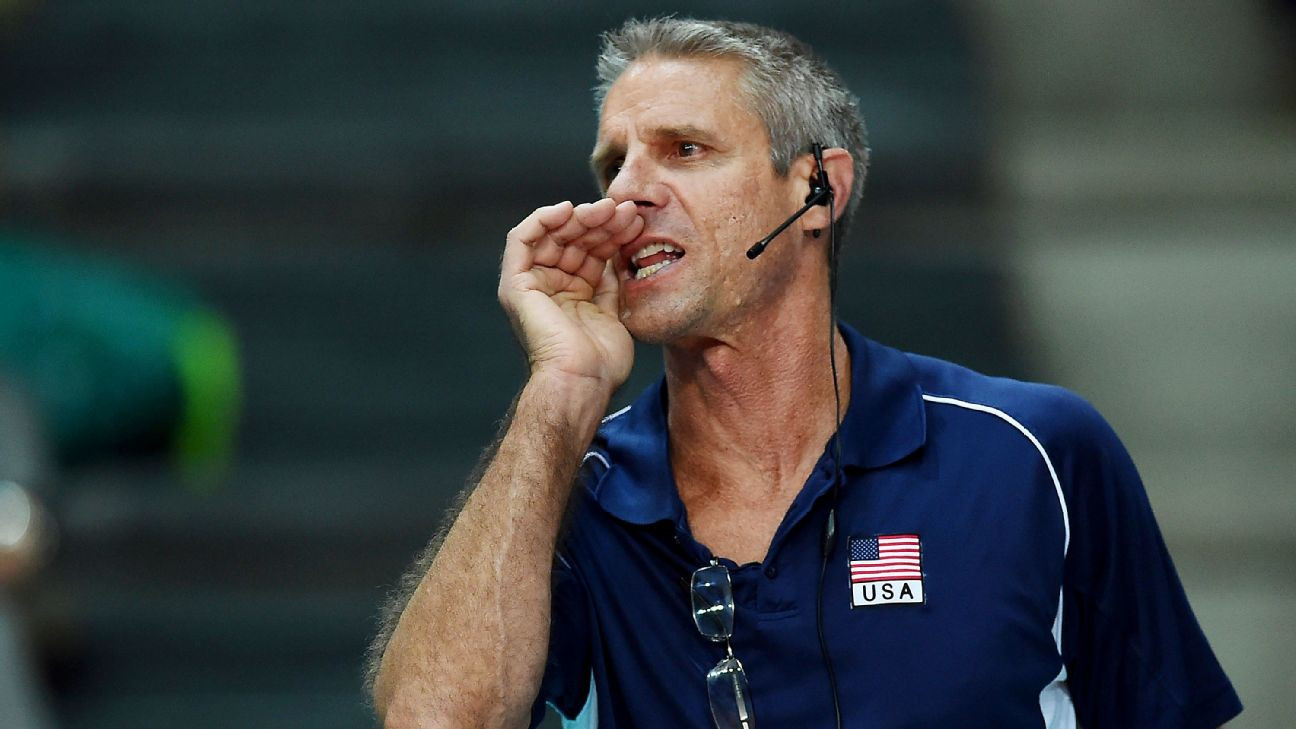
"I have thought about it just a little bit. I love what I do now, I am incredibly lucky, privileged, and honored to be a coach of the U.S. women's national team. The women that play for this program are just phenomenal people who also happen to be phenomenal volleyball players. Our staff is also built by incredible people, we have a great group of coaches and support staff, strength and conditioning. All the people that we have, are special. I am really fortunate to get to work with so many great people. I would lose a lot of that if I coach a beach volleyball team, so not a big thought of mine. I don't know, maybe someday in the future, but right now, I am still enjoying what I am doing here now and trying to become better."
The Hope. Why Volleyball?
I personally have always had this question within myself. Of course, I have the rational answers, I have the personal story. But I am always curious to hear the others. Why do we love Volleyball? Why do we breathe Volleyball, play Volleyball, and write about Volleyball?
“In football, in basketball, the ball can go to the player and that player can hold on to the ball for a long time. But in volleyball, as soon as it comes to me, I have to give it right back. I don’t get to grab and hold on to the ball, so this sport seems to be even more about team sport. The ball comes to me and I have to give it to a teammate or pass it to the other side of the net, and that’s one of the things that drives me most to volleyball. The fact that it is such a team game, and that we are only as good as our teammates are. Both the teammates who are on the court but also, as I have been saying for the Olympics, we are much more than just the seven people who are playing on the field. There were 12 strong people there, and 23 in total, including the ones that couldn’t go to the Olympics.
Does Volleyball make us better people?
“That would be the hope, for sure. It teaches us about the important things in life. That’s true about other sports too. There are thousands of millions of games going on all over the world today. Out of those games, half of the teams are winning, and half of the teams are losing. So, sports teach us how to handle varsity, how to handle difficulty, how to lose, and learn to be better from losing. When you play a team sport, it also teaches you how to play well with other people. Because that’s what you do with your family. That’s what you do in your job, too. When you are a good team player, and you bring the best out of other people, you can have a much more successful life. There are these life lessons that come from playing a team sport.”
Photo source: Volleyball World




